WHY DO WE TEACH IN LOCAL LANGUAGES?
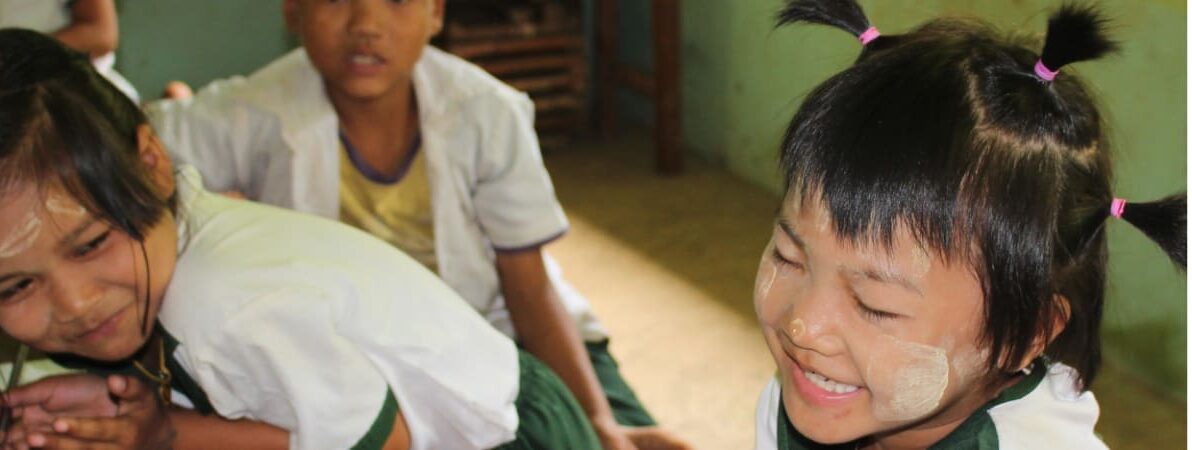
September 29, 2020
ELLEN SMITH
4 mins
Did you know – there are 27 languages spoken in Cambodia, 122 languages spoken in Nepal and 120 languages spoken in Myanmar?
Multilingual countries across the globe face difficult decisions about which language to teach in schools. The more languages spoken within a country, the more complex the challenge to provide free education for all. This means indigenous ethnic minority groups often disproportionately miss out on education due to the language factor – there simply isn’t the option to attend school and receive an education in a language they understand.
The communities we work with in South Asia make up some of the most linguistically diverse regions in the world. The remote communities with whom we work in Cambodia, Nepal and Myanmar are mostly made up of ethnic minority groups whose first languages are not the national language. Myanmar alone is home to over 100 indigenous ethnic groups, all of whom have their own dialects.
We believe that education is a right for everyone, and we are working towards achieving Sustainable Development Goal 4 to ensure inclusive and quality education for all. This is why we train teachers from the communities with whom we work, who are able to teach children in a language they understand.
It is estimated that 40% of the world’s population do not have access to education in a language that they speak or understand.
The challenge of providing education in many languages means that even highly multilingual countries often only teach in the “national language.” When indigenous language speakers are taught in a language they do not understand, they understandably struggle. These children are placed at a disadvantage compared to other children who speak the national language as their first language. By employing community teachers in our schools who speak the same languages as the children, we help our students learn the national language whilst also protecting indigenous languages and cultures.
It is for this work promoting mother-tongue education, particularly in remote regions of Myanmar, that we recently won the prestigious UNESCO King Sejong Literacy Prize. Matthew Lodge, UK Ambassador to UNESCO, said:
“This prize is a fitting recognition for their community project in a remote part of Myanmar”.
Matthew Lodge
“United World Schools have been undertaking this project in close cooperation with the local government, in order to provide the tools so that local children are able to receive their basic education in their native language. This project opens up new opportunities for children, and is an excellent example of how dedication, partnership and commitment can help in the battle against illiteracy and in the protection of indigenous languages, traditions and culture.”
Of the world’s 7,000 or so languages (the exact number is highly contested!) 2,680 are considered to be in danger. This is not just a matter of protecting indigenous languages and cultures, but also a question of human rights. Every child deserves an education, and we are dedicated to protecting indigenous languages and promoting an education that is multilingual – after all, there are many advantages to being able to converse in several languages – from greater cultural understanding to improved job prospects.
Donate today to United World Schools and help us ensure an inclusive education for children across Cambodia, Myanmar and Nepal. With your help, we can break down the language barrier, protect indigenous cultures and provide a life-changing education.
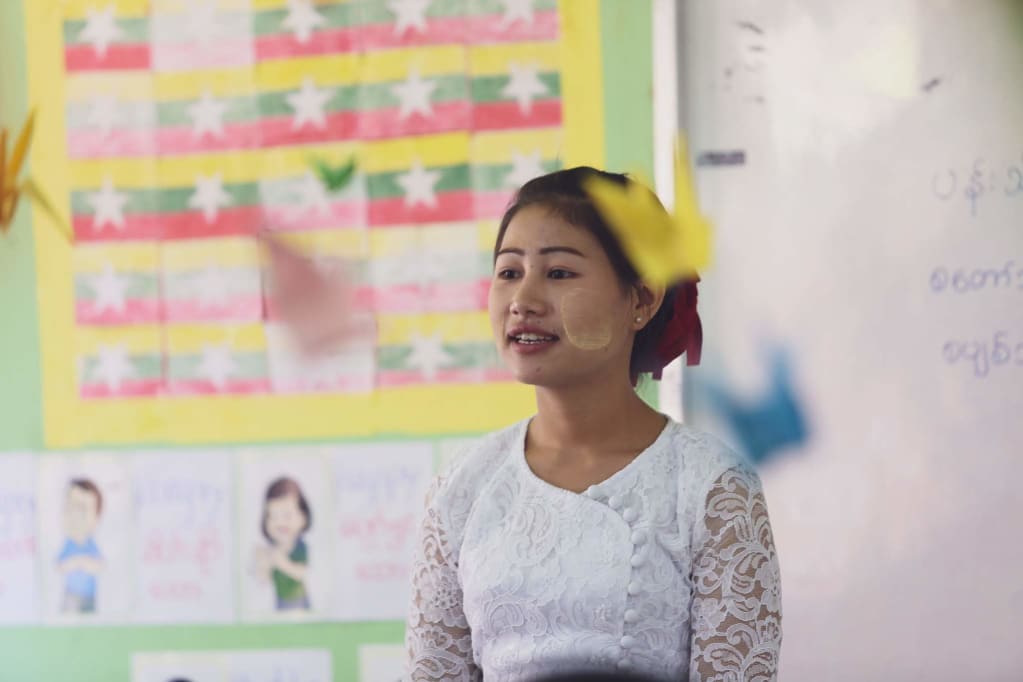

Get Involved
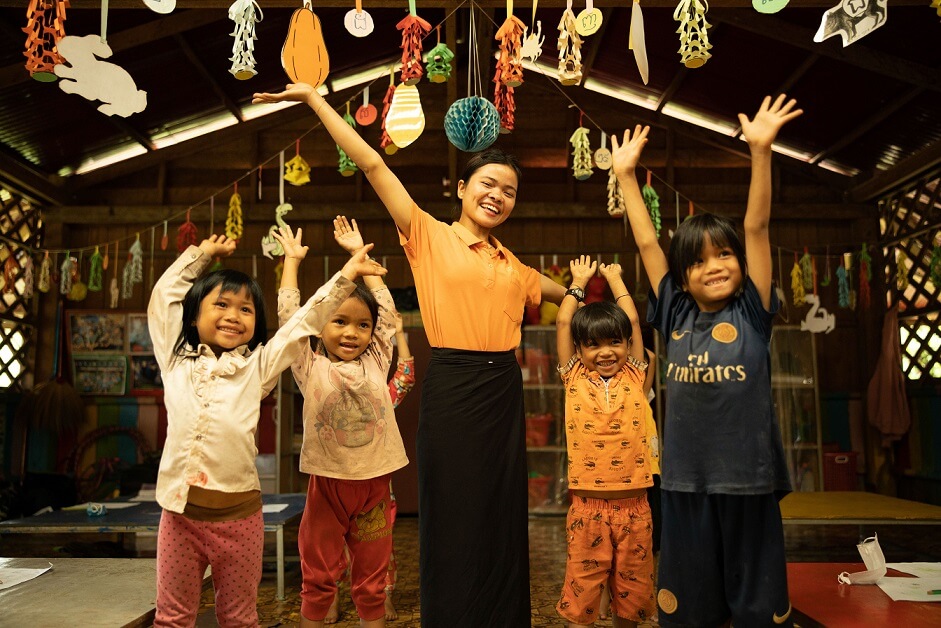
The future needs to change. You can change it
Join the movement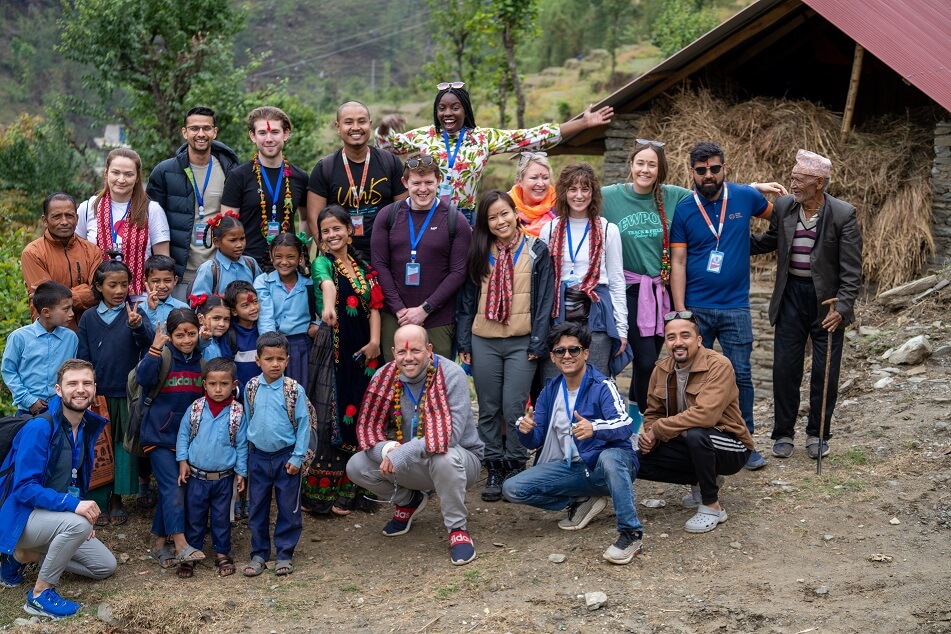
The world's greatest challenge requires the planet's greatest brands.
Become a brand partner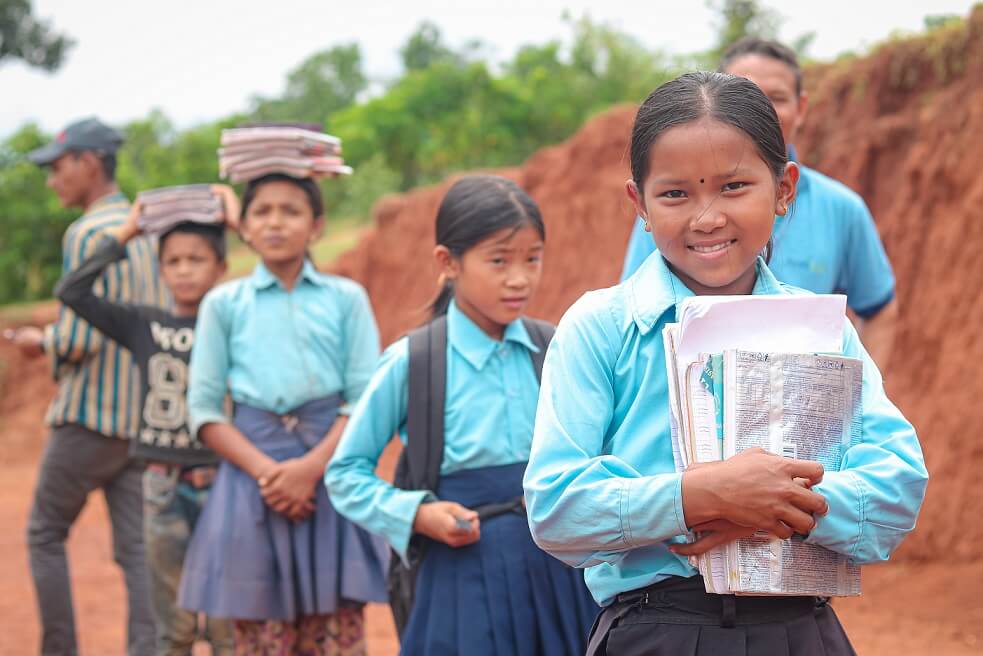
Got some spare change? Then you can change the future.
Give a philanthropic gift





